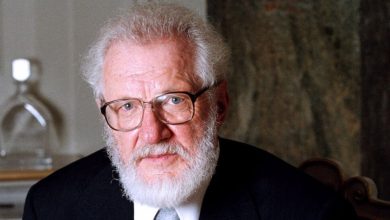Why Hundreds of New York City Prosecutors Are Leaving Their Jobs

New York City’s prosecutors are leaving in droves, citing pandemic burnout, low salaries and two intersecting laws that fundamentally changed the nature of their jobs.
“They just simply can’t do it anymore,” Darcel Clark, the Bronx district attorney, said in a Friday interview. “The money is not where it should be, and the work-life balance is just unmanageable.”
In this year’s first three months alone, 104 prosecutors have left the Bronx district attorney’s office, 36 have left Brooklyn’s and 44 Manhattan’s. The nine Staten Island assistant district attorneys who have left this year represented about 10 percent of that office’s prosecutorial staff. The Queens office told the New York City Council that it was on track this year to more than double last year’s resignations.
In the past fiscal year, the Manhattan and Brooklyn district attorneys, who have about 500 prosecutors each, lost almost a fifth of that work force, a sharp increase from attrition averages before 2020. The Bronx is shedding lawyers at a similar pace.
When the pandemic arrived in New York two years ago, it disrupted nearly all court proceedings. At the same time, two new state laws took effect governing discovery — the sharing of all evidence, potential evidence and other case-related material.
The first law requires prosecutors to obtain and hand over hundreds of documents on many cases, ademanding task that can impede interviewing witnesses and otherwise preparing for court. A second law ties the handover of that material to the speedy trial clock, creating deadline pressure for prosecutors to collect all the material once charges are filed. (That law is known as Kalief’s law, named for Kalief Browder, a teenager who committed suicide after being held on Rikers Island for three years without a trial.)
For instance, if a defendant blew into a breathalyzer, a defense attorney is entitled to six months worth of calibration reports on that device. Prosecutors also have a continuing obligation to hand over a similar number of calibration reports filed after the defendant used the device.
The new laws aren’t the only reason for departures. District attorneys say that their city-funded budgets are too thin to allow them to pay prosecutors competitively. Despite the cost of living in Manhattan and Brooklyn, starting salaries for prosecutors in those boroughs is $72,000. In the Bronx it is $75,121.
And, of course, the trend has coincided with the pandemic, which has caused record numbers of voluntary resignations across all industries.
District attorneys say their employees are struggling. Ms. Clark said her office’s lawyers, inundated with paperwork, could make $30,000 more doing similar tasks for law firms, which might also let them work from home. “Why not do that?” she said.
The district attorneys are replacing their previous employees when they can, often exchanging experienced prosecutors for untested ones.
State lawmakers rewrote the discovery law in 2019 after defense attorneys said that prosecutors were withholding key evidence. The previous law required them to turn over certain evidence only after defense attorneys had requested it in writing.
Because defendants — a disproportionate number of whom are people of color — were not privy to the full scope of the evidence against them, they often accepted plea deals, rather than risk going to trial.
“The defense bar was basically completely in the dark about what the case was even about,” said John P. Buza, a former prosecutor at the Manhattan district attorney’s office who now practices defense law as a partner at Konta, Georges & Buza, P.C.
Public defenders argued that without pressure on prosecutors to turn over exculpatory facts, their clients were perpetually at risk of wrongful conviction.
The discovery law changed that. Prosecutors are now obligated to turn over 21 kinds of material, including all electronically created or stored information relevant to a case.
Prosecutors now must hustle to obtain reams of paperwork — much of it produced by the New York Police Department — and submit it to defense attorneys or risk seeing a case tossed out. Prosecutors often work as many as 100 cases simultaneously, and a large percentage of their cases now generate significant paperwork.
Ms. Clark said that the workload had led to immense pressure on her assistants, who “feel that their cases are going to get dismissed or that I’m going to fire them.”
“When they have all this pressure on them, they’d rather go somewhere else where their quality of life is better,” she said. “They don’t have to work nights, weekends, holidays and do all this discovery.”
Caitlin Nolan, an 11-year veteran of the Manhattan district attorney’s office, said in an interview Friday that she started looking for a new job last spring, amid the challenges of working on a low salary, the everyday difficulties of the pandemic and frustration with the new laws. She left the office in January.
“It was difficult to comply with because there was so much we were expected to produce,” she said, adding that having to provide information about witnesses — who would express concern to her about defendants knowing their identities ahead of a trial — was particularly nerve-racking.
In recent testimony submitted to the New York City Council, the Manhattan district attorney, Alvin Bragg illustrated the burden. He reported that before 2020, his office used about 32 terabytes of data storage. Today, it uses 320 terabytes, a 900 percent increase over two years.
Tina Luongo, the attorney in charge of the criminal defense practice at the Legal Aid Society, said that she agreed that prosecutors — and public defenders — needed more money for competitive salaries, particularly in light of the discovery laws.
“High workloads, even high workloads for public defenders, diminish morale. I’m not going to deny that,” she said, adding that she expected the state to provide local prosecutors with tens of millions of dollars for staffing in its coming budget.
But, she said, “It cannot be the case and it must not be the case that the way you solve a workload problem is to diminish the rights of somebody accused of a crime.”
Mr. Buza said that his former colleagues are not saying that the principles underlying the new laws are unjust or misguided, but are simply overwhelmed by the way the job overall has changed, with the need to chase down documents for which they are legally responsible — even if they might not be aware such materials exist.
“People go into the job because they have an idea as to what it means to be a prosecutor and go into court and try cases, and they end up just basically uploading discovery,” he said.
Last month, Gov. Kathy Hochul proposed changes to the discovery law that would prevent a judge from dismissing a case if a prosecutor was in “substantial compliance” with discovery obligations. Ms. Luongo said that various counterproposals were under negotiation.





